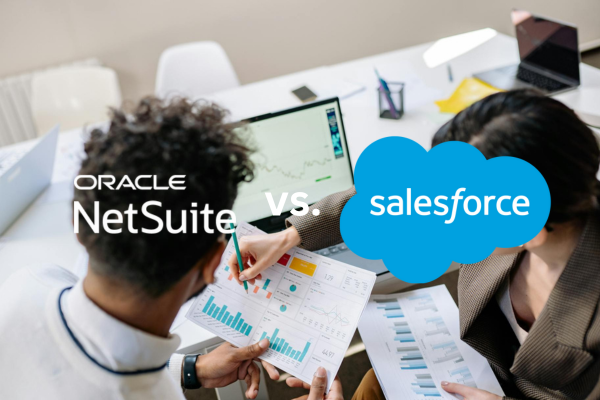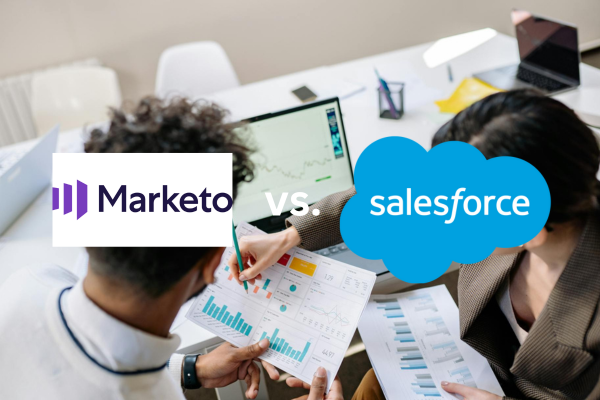In a business landscape where consumer expectations for personalized marketing continue to soar, it’s more important than ever to deliver tailored-made experiences — at scale. In fact, personalization is at the very top of consumers’ wish lists; a KPMG study has found that personalization is the top determinant of customer loyalty, even more so than cost or value.
Businesses of all types are beginning to understand the importance of personalized marketing, and are becoming smarter about delivering it efficiently. On average, organizations that leverage marketing automation enjoy a 25% increase in marketing ROI and an impressive 30% boost in lead conversions.
Many organizations are using marketing automation to deploy individualized marketing initiatives faster than ever before — so it’s easy to see why it has become the fastest-growing segment in the CRM space. Currently, approximately 68% of businesses rely on marketing automation to meet their goals. And the solution’s global market size is predicted to reach US$ 8.42 billion by 2027, which would represent a compound annual growth rate of 9.8% from 2020-2027.
Marketing Cloud in a Nutshell
Salesforce Marketing Cloud is an omnichannel marketing automation platform that fuels high-impact marketing campaigns. At its core, Marketing Cloud contains sophisticated tools and features that enable businesses to understand consumers on a deeper level. It empowers organizations to connect with consumers through personalized journeys that include: advertising, web personalization, email campaigns, mobile, social media, and more.
With Salesforce Marketing Cloud, teams can map out a coordinated series of customer interactions during each stage of the customer lifecycle. These interactions can be tailored to suit consumer behavior and meet specific business objectives.
In addition to providing consumers with a personalized experience, Salesforce Marketing Cloud delivers critical insights, including but not limited to:
- The types of emails consumers are opening
- The content they are interested in
- Posts that resonate on social media
- How outreach efforts translate to website visits and other actions
Behavioral Marketing
Behavioral marketing is an effective strategy that uses data to analyze consumers’ interests, purchasing patterns, and where they go online. Based on this information, marketers can build campaigns and website features that deeply resonate with their best prospects.
Marketing Cloud’s behavioral tracking methods — like monitoring a consumer’s path through a website — enable organizations to understand prospects on a deeper level and produce content they can relate to. The more personalized and targeted an organization’s messaging is, the more likely it is to see higher click-through rates, return website visits, and most importantly, conversions.
Bringing the Data to Life
In the past, marketers would use a broad-stroke approach to entice a wide audience through newspaper or radio ads. Now, marketing follows a targeted approach using measurable metrics and statistical analysis.
With Marketing Cloud, consumer interactions are transformed into data-based actionable insights — thereby allowing businesses to refine their marketing strategies and convert more leads. Marketing cloud measures all aspects of an organization’s marketing efforts using artificial intelligence and Google Analytics 360. By bringing together information from various consumer touchpoints, Marketing Cloud assigns each lead a specific score; this enables a business to prioritize leads based on their probability of conversion.
With a targeted list of promising leads, businesses can focus their marketing efforts on consumers who are most likely to convert — using strategic messaging tailored to their preferences. For instance, when Dell began to deploy messaging based on customers’ web histories and the products they would leave in their shopping carts, it saw a 70% increase in click-through rates and a 300% increase in conversion rates.
Marketing Cloud’s Features
Marketing Cloud offers several tools to supercharge an organization’s marketing efforts — businesses can choose specific packages based on their marketing needs. Below is a list of some prominent Marketing Cloud features:
Journey Builder uncovers the moments that define meaningful interactions and uses them to forge fruitful customer relationships. Real-time events — like closed service cases or mobile app downloads — trigger messaging throughout the customer journey. Businesses can adjust journey messaging based on data, and customers’ current and predicted behaviors to unlock conversions.
Email Studio features drag-and-drop segmentation tools to refine subscriber lists so messaging is always relevant. Marketers can take advantage of personalized scripting language, and interactive content like carousels to drive engagement with ease.
Social Studio can analyze conversations across social media channels. It enables teams to act on these insights by creating personalized journeys from Social Studio's social automation engine.
Content Management allows organizations to build visually appealing blogs, social posts, email campaigns, and more. Individuals can leverage templates to effortlessly develop, publish, and update promotional material in seconds.
Datorama uses automated regression modeling and statistical analysis methods to turn endless days of data analysis into minutes. Businesses can see the results of every marketing investment and activity — and save a tremendous amount of time.
Interaction Studio enables users to assign anonymous and known consumers into specific groups based on similar attributes. It uses customer identity-matching policies to build precise customer records and captures a user’s industry, geo-location, referring source, company, and more to power machine-learning recommendations.
Salesforce CDP empowers users to take control of consumer data and put it to work. Salesforce CDP allows marketers to connect customers to their engagement behavior with AI-driven, cross-channel insights, so they can adjust marketing efforts accordingly.
Google Marketing Platform allows users to gain invaluable insights about customers and understand them on a deeper level. It uses a built-in connection to Google Cloud and Google’s machine learning capabilities to unlock powerful insights.
Pardot automates common manual marketing and sales tasks to enable marketers to save time, speed up their sales cycles, and close more deals.
Wrap-Up
With a Marketing Cloud solution, businesses can do more with less — and reap substantial ROI gains. Countless businesses are taking advantage of the many benefits marketing automation has to offer, including added efficiency and enhanced visibility.
Salesforce Marketing Cloud offers several subscription plans to choose from. Working with a knowledgeable Salesforce implementation partner can help you assess which plan is right for your unique marketing strategy.
Could your business use a Marketing Cloud transformation? Reach out to us to strike up a conversation about your marketing needs today!










